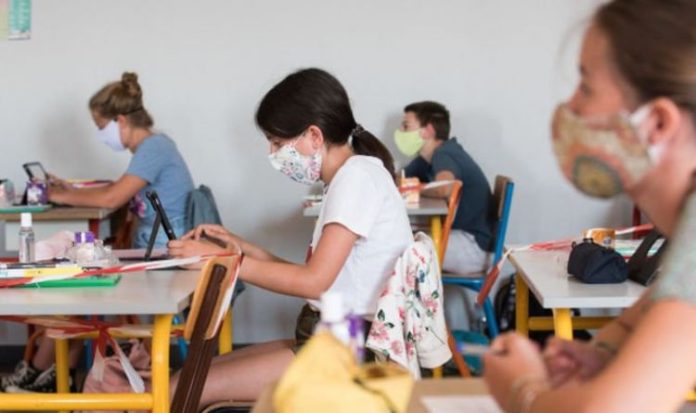A study of 300,000 adults living in healthcare worker households in Scotland found that those living with children under the age of 11 had a lower risk of catching COVID-19. They also had a lower chance of being hospitalised with the illness. The study also found the risk was lower still in those living with two or more children.
Households with children over the age of 12 had no lowering risk, compared to those living in childfree homes.
The study has yet to be peer-reviewed, which means it has not been scrutinised by other experts and scholars within the field.
The reasons for this protection are not well understood but could be due to differences in the immune response to COVID-19.
The team of scientists believe parents, and those living, with young children may be protected against more severe COVID-19 systems because children’s immune systems are boosted regularly by catching coughs and colds.
The experts behind the study wrote: “Such differences are due to differential exposure to non-SARS-CoV-2 infectious agents, adults who are close contacts of children may partly share in this protection.
“Such a protective effect would have important implications for the lives of children, not least in terms of schooling.”
The academics have called for more research to be carried out to try and establish whether primary school and nursery teachers are benefitting from young children acting as “natural vaccine boosters”.
The report also pointed out how adults living with no children, or with teenagers, were likely to be older and so likely to have existing problems that could make them more susceptible to the virus.
Healthcare workers with young children are also more likely to choose part-time work because of childcare concerns, consequently limiting their exposure to the virus while at work.
The report concluded: “Verification of this finding is needed in other settings where both exposure to SARSCoV-2 and contact with young children are common.
“These findings have potentially important implications for future controls of the COVID-19 pandemic, for example through informing policy on nursery and school closure and vaccination.”
There has been a growth in the number of young people and teenagers catching the coronavirus, with those aged between 17 and 24 seeing the largest rise in cases.
However, the average age of death from COVID-19 is 82.4 years.







